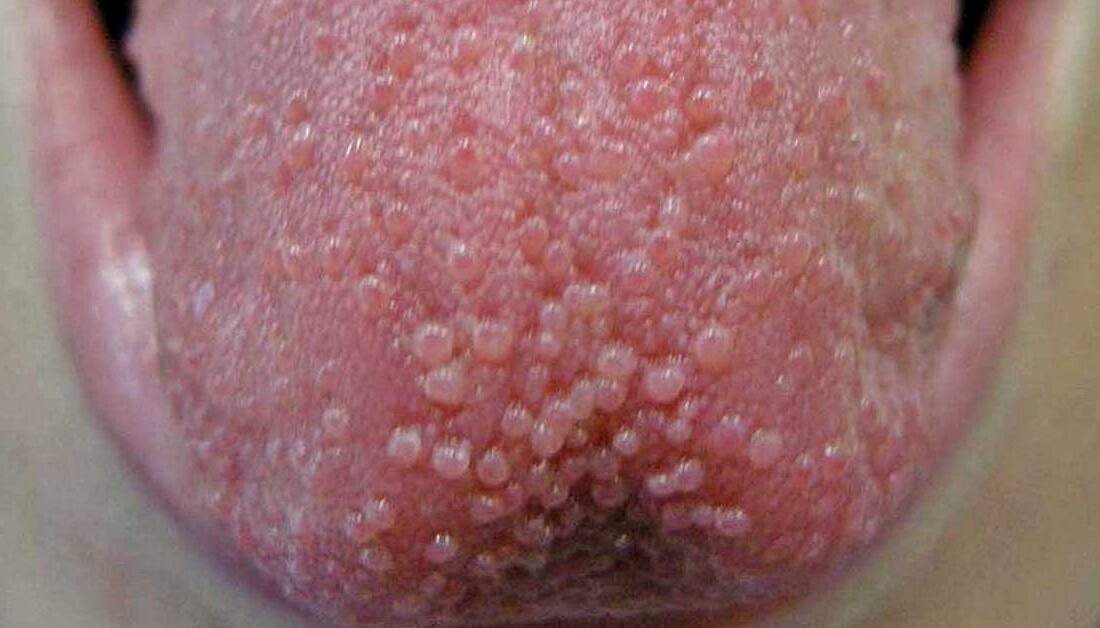Tongue bumps are really irritating. How they develop and what you can do about the bumps? We’ll explain it to you.
Everyone probably knows pimples on the face, but pimples or pustules can also form on our tongue. These appear in the form of small blisters, so-called aphthae, and settle visibly as small white spots, especially on the tip of the tongue. Especially when eating and in contact with acidic foods, bumps on the tongue are extremely painful.
Bumps on the tongue: Causes
Anyone who now believes that aphthae on the tongue develop like pimples and pustules on the face due to clogged sebaceous glands is wrong. The causes of the painful bumps on the tongue are manifold:
- One reason for aphthae can be lack of oral hygiene. Bacteria can settle in the oral cavity and promote pimples. So if you brush your teeth too seldom or suffer from caries, you must expect unpleasant bumps on your tongue.
- Another cause of bumps on the tongue is incorrect nutrition and indicates a lack of vitamins and minerals (vitamin B12, iron or folic acid). However, highly acidic foods can also lead to aphthae on the tongue.
- You suffer from indigestion? That could also lead to the nasty blisters. Because the tongue reflects the state of health of the internal organs.
- Stress or a considerable lack of sleep can also cause aphthae.
- The painful bumps on the tongue can also be caused by a weakened immune system, for example due to illness or due to the intake of high doses of medication.
You can do that for bumps on your tongue
What you definitely shouldn’t do is squeeze the alveoli. We have put together six effective tips and home remedies in the fight against aphthae:
- Herbal teas: How about a cup of tea? Especially herbal teas like chamomile, sage or thyme have an antibacterial effect, prevent inflammations and thus aphthae on the tongue and also have a calming effect. Alternatively, you can dip a cotton swab in tea and use it to dab the inflamed area of the mouth.
- Herbal oils: Other home remedies against aphthae on the tongue are sage, oil of cloves or St. John’s wort and sage leaves. It is important that it is an oil that does not contain acid.
- Mouthwashes: Mouthwashes also help against spots on the tongue. Salt water, for example, disinfects the mouth and kills bacteria. To do this, dissolve half a teaspoon of table salt in 250 millilitres of water and rinse the mouth several times a day.
- Blueberries: Chewing blueberries is also good. The small, dark blue berries contain tanning agents that have an anti-inflammatory effect when bumps appear.
- Cooling: You have particularly acute pain? Then you should suck an ice cube or milk ice. A glass of milk, which you drink in sips, can also provide rapid relief from cold sores.
- Ointments: You’ve already tried all the home remedies, but the aphthae just won’t go away, but, even worse, they burst open and ignite? Then you should see a doctor immediately. The doctor will be able to examine exactly what causes the inflammation in the mouth and prescribe an ointment that will get at the bumps on your tongue.
You can prevent bumps on your tongue
To prevent bumps on the tongue from developing in the first place, you should take the following tips to heart:
- Thorough dental cleaning is the most important thing to prevent aphthae. It is best to brush your teeth after a meal and clean your tongue with a toothbrush.
- Avoid sugary drinks and foods such as lemonade, cola or chocolate to give bacteria in your mouth no chance at all.
- You feel groggy? Strengthen your immune system with vitamin C (blackcurrant, sea buckthorn) or vitamin B6 (bananas, avocado, broccoli, spinach) to protect you from inflammation in the mouth.

